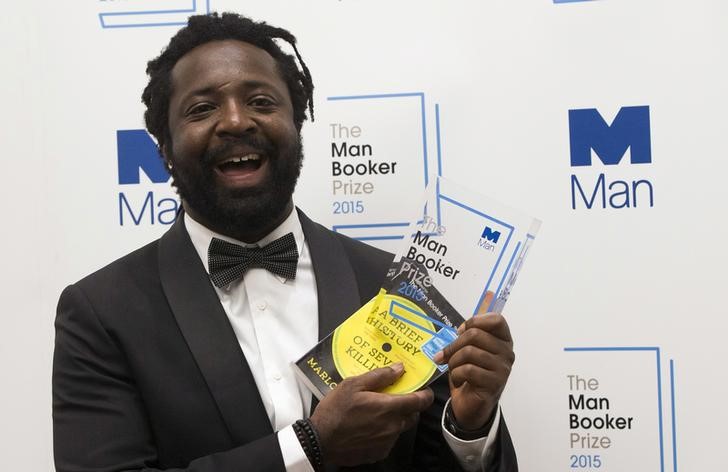By Rebekah Kebede
TREASURE BEACH, Jamaica (Reuters) – Living as a closeted gay man in Jamaica drove novelist Marlon James to such despair that he once wrote he knew he had to leave “in a plane or a coffin.”
He left, on a plane for the United States, seemingly confirming Time magazine’s 2006 headline that the Caribbean island was “The Most Homophobic Place on Earth.”
Back for the Calabash International Literary Festival, which features poets, novelists and writers from across the globe, the 2015 Man Booker Prize winner said his own story was actually more complicated.
“The thing about Jamaica, for such a small country, is that there are 10 different Jamaicas and the one you live in is not necessarily the one that everyone else lives in,” said James, 45.
He described his milieu as for the most part “uptown,” very different from the Jamaica that makes headlines as a place where gay people are beaten to death by mobs. International media painted a one-sided picture of his home country, James said.
“They have a narrative that Jamaica is a place where these anti-gay Gestapos are running around killing people that they are just so desperate to get that narrative.”
Rather than a fear of being killed, the “coffin” comment he wrote in a 2015 New York Times article referred to touching rock bottom and contemplating suicide as he struggled with his identity.
“I didn’t think I could live here as a gay man. But I didn’t need a beating to find that out,” he said.
The divide between the better off “uptown” and underprivileged “downtown” creates a constant tension on the island, one addressed in “A Brief History of Seven Killings,” James’ novel about an assassination attempt on Bob Marley that catapulted the author to global fame.
The class divide is especially acute for gay people.
A poor gay Jamaican can face violence on the streets, but an “uptown” gay Jamaican can be tacitly accepted, or at least tolerated.
“It’s the one country in the world I have a right to be in. In the sense that I can step into Jamaica with a sense of entitlement because I am entitled to my country,” said James, who lives in Minneapolis and teaches at Macalester College.
“Which is not to say I’m kidding myself that everything is fine or that I could walk down the street holding some guy’s hand or anything like that.”
“The reason that homophobia is so acute in Jamaica is because the church supports it,” said the former church-goer who underwent attempts to cure him of being gay.
But James also acknowledged churches as the “lifeblood” of many communities and a constructive force.
James has come back to Jamaica three times so far this year, and credits the Calabash Festival for the publication of his first novel. It was at a workshop at the bi-annual event that U.S. author Kaylie Jones convinced James to resurrect the book after multiple rejections.
“This is also a place where I discovered so much of the world of literature. This is the place where my mind was first blown, in a way. It’s a sense of familiarity and family and also discovery. Also, it’s nice seeing a beach,” he said, sitting by the Caribbean Sea.
James said he was not ready to move back to a country he had left when he was 37, because of the opportunities for writers in the United States.
“There’s a literary community, there’s support, there’s infrastructure, there are grants. There are all these things in place to help the writer where I live that are just not here.”
(Reporting by Rebekah Kedebe; Editing by Frank Jack Daniel and Richard Chang)


